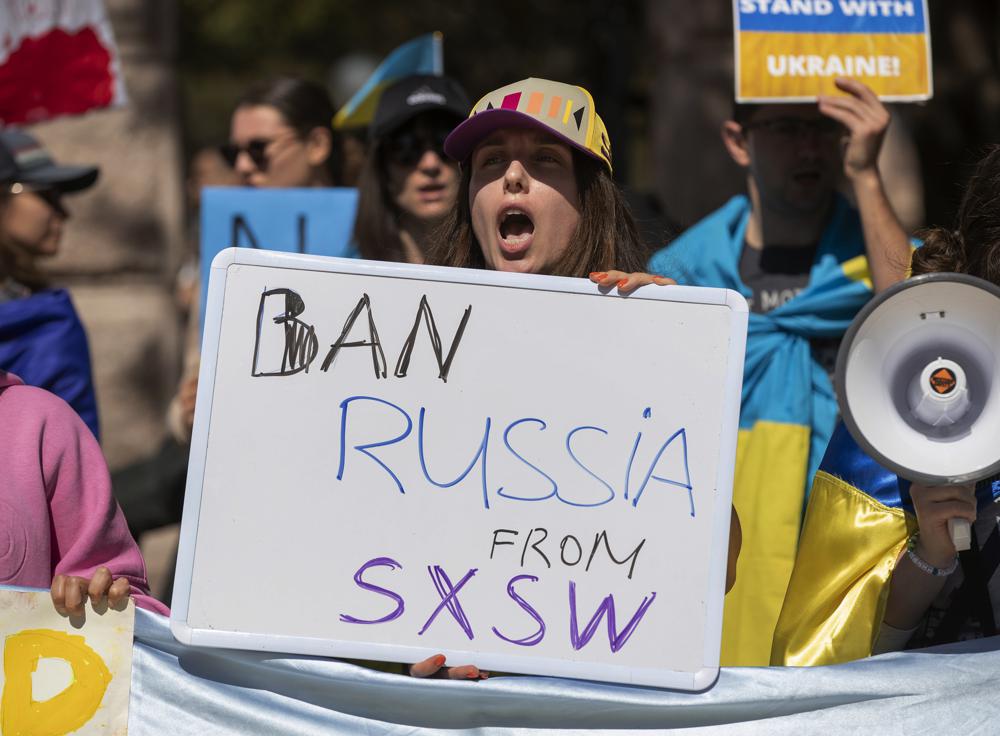
It’s a globalized world — a planet stitched together by intricate supply chains, banking, sports and countless other threads of deep connection. Until it isn’t.
Exhibit A: Russia this week, abruptly cut off from the larger world on multiple fronts. Its ability to bank internationally has been curtailed. Its participation in major international sports is crumbling. Its planes are restricted over Europe. Its vodka may no longer be welcome in multiple U.S. states. Even Switzerland, whose very name is shorthand for neutrality, is carefully turning its back on Vladimir Putin.
In barely three days, Russia has become an international outcast because of its invasion of Ukraine, and its leader is finding himself with fewer and fewer foreign friends. What’s more, the actions against Moscow are happening in diverse, far-reaching ways that are remarkable for — and in some cases helped along by — the extremely connected world in which we live.
“Something has happened here. It has cascaded in ways no one could have envisioned three or four days ago,” said Andrew Latham, a professor of international relations at Macalester College and a geopolitics expert. “It’s really a strange, strange thing to be watching.”
In just the past three days, a flurry of major moves has happened in rapid fire — both sanctions from governments and actions from the alliances, organizations and people that surround them. Together, in many ways they outdo some of the world’s most recent sanctions packages, including those against Iran and North Korea.
European nations, notably united on the issue, have closed their airspace to Russian planes. The SWIFT international financial system, which enables billions of dollars in transactions for more than 11,000 banks and other institutions around the world, restricted key Russian banks from its network over the weekend — a potential body blow to Russian finances.
On Monday, world and European bodies suspended Russian teams from all international soccer, including qualifying matches for the 2022 World Cup. This came after the International Olympic Committee called on sports organizations to exclude Russian athletes and officials from international events. When the International Ice Hockey Federation and the National Hockey League announced their own measures against Russia, it was clear that a movement was underway that was more widespread than anything seen in the sports world in decades.
Germany, in an extraordinary move, broke with its post-World War II foreign policy and said it would help send weapons to Ukraine — an action that its chancellor, Olaf Scholz, called “a new reality.” Finland and Sweden, countries that are hardly rash about jumping into the fray, seem to be road-testing positions potentially adversarial to Russia. Switzerland, a nation renowned for its secure banking, is “taking a tougher line with regard to Russia,” the head of its economic affairs department, Guy Parmelin, said Sunday.
Less directly impactful but no less resolute were efforts by several U.S. states — Virginia, Pennsylvania, North Carolina, Vermont, West Virginia and Maine among them — to purge liquor outlets of Russian vodka and other products. Some states, like Pennsylvania, also took steps Monday toward divesting any Russia-related holdings.
“We must wield our economic power to ensure that Russia faces grave consequences for their flagrant violations of international law and human cooperation,” wrote state Sen. Sharif Street, D-Philadelphia.